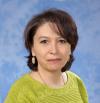References
1. Korotkina I. B. Akademicheskoe pis'mo: Process, produkt i praktika [Academic writing: Process, product and practice]. Moscow, 2023. 295 p. (In Russ.)
2. Lynn S. Rhetoric and Composition. Cambridge, 2010. 330 p.
3. Hyland K. Writing in the university: education, knowledge and reputation. Language Teaching. 2011. Vol. 46. P. 53–70.
4. Avtonomova N. B., Miheeva L. P. Writing as one of the components of teaching post-graduates a foreign language in a university. Aktual'nye problem social'noj istorii i social'noj raboty: sbornik nauchnyh statej: pod red. P. Ya. Citkilova [Actual problems of social history and social work: a collection of scientific articles: ed. by P. Y. Tsitkilov]. Novocherkassk, 2018. Is. 2. P. 186–188. (In Russ.)
5. McCarthy L. P. A stranger in strange lands: A college student writing across the curriculum. Research in the Teaching of English. 1987. Vol. 21. No. 3. P. 233–265.
6. Thaiss C., Porter T. The state of WAC/WID in 2010: Methods and results of the U.S. survey of the international WAC/WID mapping project. College Composition and Communication. 2010. Vol. 61. P. 534–570.
7. Ochsner R., Fowler J. Playing Devil’s Advocate: Evaluating the Literature of the WAC/WID Movement. Review of Educational Research. 2004. Vol. 74. No. 2. P. 117–140. DOI: 10.3102/00346543074002117
8. Becher T. Disciplinary discourse. Studies in Higher Education. 1987. Vol. 12 (3). P. 261–274. DOI: 10.1080/03075078712331378052
9. Hyland K. Disciplinary discourses: Social interactions in academic writing. Harlow, UK: Pearson Education Limited, Longman, 2000. 211 p.
10. Hyland K. Academic discourse. The Bloomsbury Companion to Discourse Analysis. Ed. by K. Hyland, B. Paltridge. London, 2011. P. 171–184.
11. Tolstova T. V. Corpus analysis of genre conventions in Russian and international research article abstracts. Vestnik Moskovskogo universiteta. Seriya 19: Lingvistika i mezhkul'turnaya kommunikaciya [Bulletin of Moscow University. Ser. 19 «Linguistics and intercultural communication»]. 2020. No. 1. P. 118–129. (In Russ.)
12. Tivyaeva I. V., Kuznetsova D. L. Comparative analysis of abstract content and structure in Russian and English research papers. Aktual'nye problem filologii i pedagogicheskoj lingvistiki [Actual problems of philology and pedagogical linguistics]. 2020. No. 3. P. 139–152. DOI: 10.29025/2079-6021-2020-3-139-152 (In Russ.)
13. Zanina E. Move Structure of Research Article Abstracts on Management: Contrastive Study (the Case of English and Russian). Journal of Language and Education. 2017. Vol. 3. No. 2. P. 63–72. DOI: 10.17323/2411-7390-2017-3-2-63-72
14. Ryabtseva N. K. Academic paper titles and their dominating patterns: a Russian-English perspective. Vestnik Volgogradskogo gosudarstvennogo universiteta. Ser. 2 «Yazykoznanie» [Bulletin of Volgograd State University. Ser. 2 «Linguistics»]. 2018. T. 17. No. 2. P. 33–43. DOI: 10.15688/jvolsu2.2018.2.4 (In Russ.)
15. Kolesnikova N. I. What is important to know about the language and style of scientific texts? Article One. Vysshee obrazovanie v Rossii [Higher education in Russia]. 2010. No. 3. P. 130–137 [Electronic resource]. Electron. dan. URL: https://cyberleninka.ru/article/n/chto-vazhno-znat-o-yazyke-i-stile-nauchnyh-tekstov/viewer (date of access: 01.08.2022) (In Russ.)
16. Trofimova G. K. Russkij yazyk i kul'tura rechi: kurs lekcij [Russian language and speech culture: lectures]. Moscow, 2004. 160 p. (In Russ.)
17. Lapteva O. A. How Russians write. Russkaya rech’ [Russian speech]. 1995. No. 2. P. 55–62. (In Russ).
18. Serebriakova O. A. Entrance testing as a diagnostic tool for quality management in ESL. Sovremennoe obrazovanie: Integraciya obrazovaniya, nauki, biznesa i vlasti: materialy mezhdunarodnoj nauchno-metodicheskoj konferencii [Modern education: integration of education, science, business, and power: Proceedings of the international research and methodology conference, Jan, 26‒27, 2023]. Tomsk, 2023. Part 2. P. 96–102. (In Russ.)
19. Antonova M. B., Bakulev A. V. Academic Writing in English for Mathematics and Computer Science: Academic writing in English: fundamental and applied mathematics and computer science [Electronic resource]. Electron. dan. URL: https://e.lanbook.com/book/151302 (date of acсess 19.06.2023).
20. Popova N. G., Koptyaeva N. N. Academic writing: articles in IMRAD format: textbook [Electronic resource]. Electron. dan. URL: https://e.lanbook.com/book/175130 (date of acсess 20.06.2023).
21. Shpit E. I., McCarthy P. M. Addressing discourse differences in the writing of Russian engineering students and international researchers. Language Teaching Research. Advance online publication. 2022. DOI: 10.1177/13621688221109809
22. McNamara D. S., Graesser A. C., McCarthy P., Cai Z. Automated evaluation of text and discourse with Coh-Metrix. Cambridge, 2014. 289 p.
23. McCarthy P. M., Watanabe S., Lamkin T. A. The Gramulator: A tool to identify differential linguistic features of correlative text types. In P. M. McCarthy and C. Boonthum Denecke (Eds.). Applied Natural Language Processing: Identification, Investigation and Resolution. Hershey, Pennsylvania, 2012. P. 312–333. DOI: 10.4018%2F978-1-60960-741-8.ch018
24. Duncan B., Hall C. A Coh-Metrix analysis of variation among biomedical abstracts. Proceedings of the 22nd International Florida Artificial Intelligence Research Society Conference, FLAIRS-22. Florida, 2009. P. 237‒242.
25. Cho-Min H., McCarthy P. Identifying Varietals in the Discourse of American and Korean Scientists: A Contrastive Corpus Analysis Using the Gramulator. Proceedings of the 23rd International Florida Artificial Intelligence Research Society Conference, FLAIRS-23. Florida, 2010. P. 247‒252.
26. McCarthy P. M., Kaddoura N., Al-Harthy A., Thomas A. M, Duran N. D, Ahmed K. Corpus analysis on students’ counter and support arguments in argumentative writing. PEGEM Journal of Education and Instruction. 2022. No. 12 (1). P. 256–271. DOI: 10.47750/pegegog.12.01.27
27. Shpit E. I., Kurovskii V. N. Science writing in English: difficulties for novice Russian authors. Vestnik Krasnoyarskogo gosudarstvennogo pedagogicheskogo universiteta im. V. P. Astaf'eva [Bulletin of the Krasnoyarsk State Pedagogical University named after. V. P. Astafieva]. 2022. No. 3 (61). P. 193–219. DOI: 10.25146/1995-0861-2022-61-3-363 (In Russ.)












